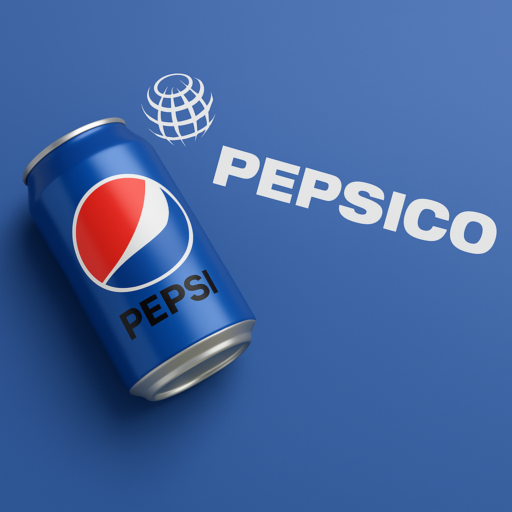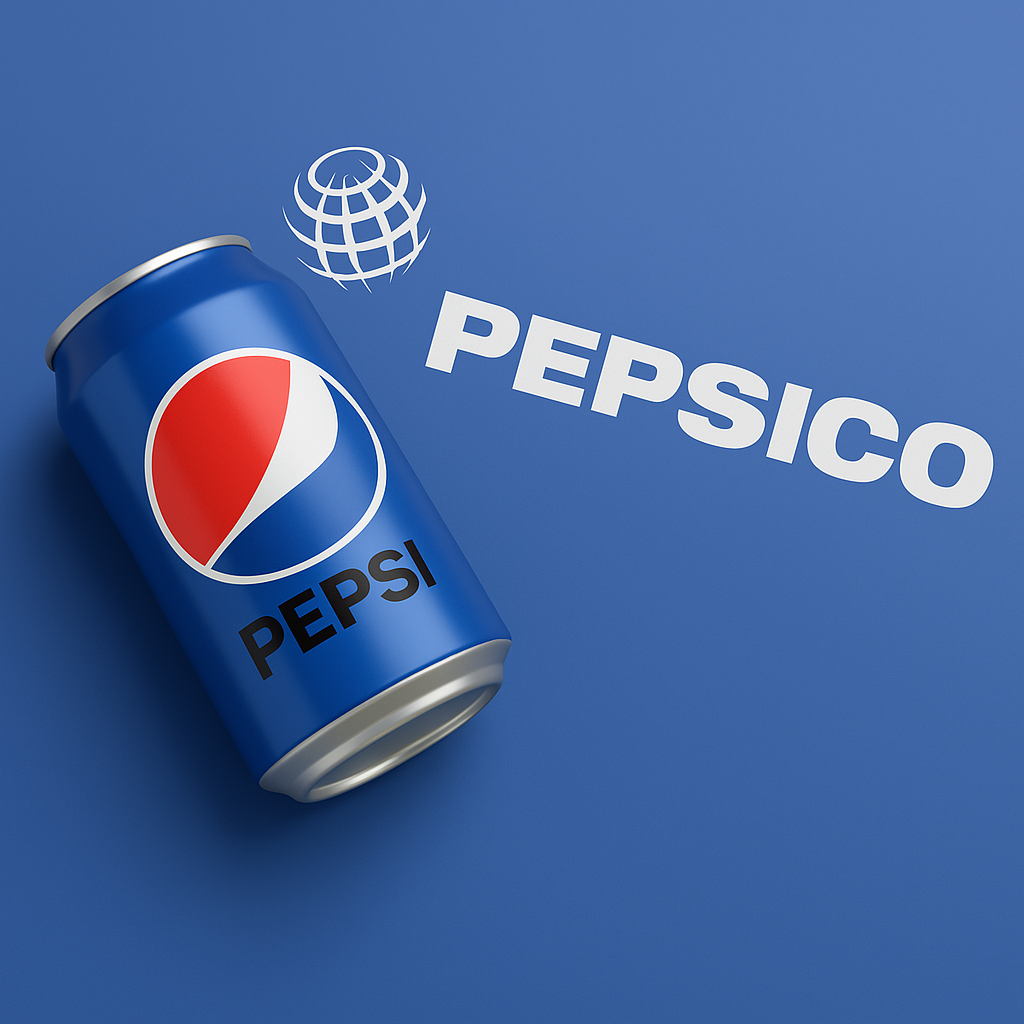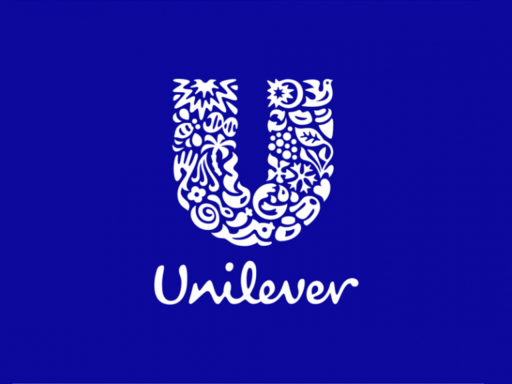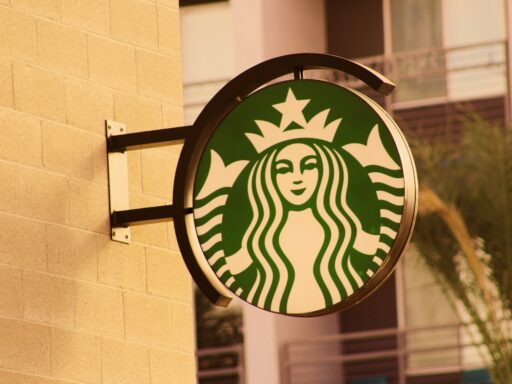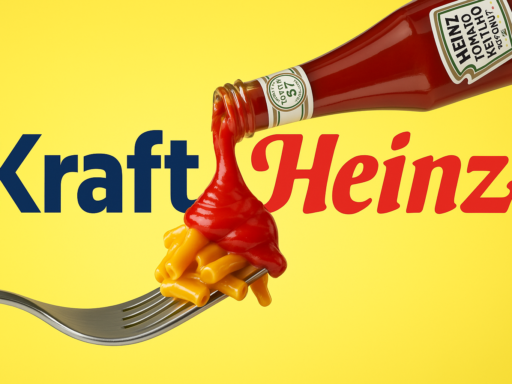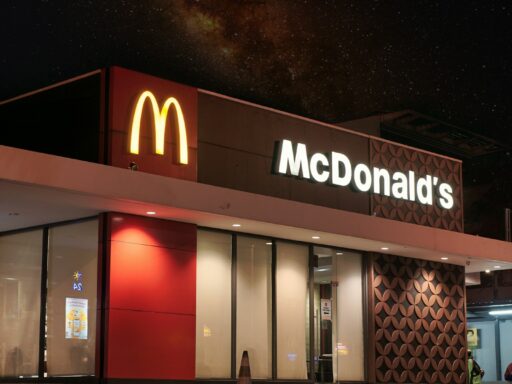PepsiCo, one of the world’s largest food and beverage companies, operates in over 200 countries with a portfolio that includes well-known brands such as Pepsi, Lay’s, Gatorade, Tropicana, Doritos, and Quaker. As a global company deeply embedded in agriculture, water use, and packaging, PepsiCo faces significant sustainability challenges. In response, it has made sustainability a strategic business priority through its end-to-end transformation program known as PepsiCo Positive (pep+).
Launched in 2021, pep+ integrates sustainability into every aspect of PepsiCo’s operations — from sourcing ingredients and manufacturing to packaging and consumer engagement. With science-based targets and bold circular economy ambitions, PepsiCo aims to decouple growth from environmental impact and drive regenerative business practices across its value chain.
- PepsiCo aims to achieve net-zero greenhouse gas emissions across its value chain by 2040
- The company reported a 25% reduction in Scope 1 and 2 emissions between 2015 and 2022
- As of 2023, 93% of PepsiCo’s global electricity came from renewable sources
Source: https://www.pepsico.com/sustainability/strategy
Sustainability Strategy and Goals
PepsiCo’s sustainability strategy is guided by its pep+ framework, which is built on three main pillars: positive agriculture, positive value chain, and positive choices. These pillars address climate action, water stewardship, sustainable packaging, regenerative farming, and nutrition.
The company’s climate goals are aligned with the Science Based Targets initiative. PepsiCo plans to achieve net-zero emissions across Scope 1, 2, and 3 by 2040. Interim 2030 targets include reducing absolute greenhouse gas emissions by 75% for Scope 1 and 2, and 40% for Scope 3 (from a 2015 baseline).
PepsiCo is also committed to regenerative agriculture on 7 million acres — roughly equivalent to its agricultural footprint — and aims to use 100% reusable, recyclable, or compostable packaging by 2025. Additionally, the company is addressing water risk through watershed replenishment and factory water efficiency.
- Net-zero emissions across all scopes by 2040, with 2030 targets of 75% (Scopes 1 & 2) and 40% (Scope 3) reductions
- Regenerative agriculture practices targeted on 7 million acres by 2030
- 100% of packaging to be recyclable, compostable, or reusable by 2025
Source: https://www.pepsico.com/sustainability/environmental-sustainability
Key Sustainability Innovations and Technologies
PepsiCo is leveraging innovation across its supply chain and product lines to reduce environmental impact. The company has developed a suite of agricultural tools and programs under its global Positive Agriculture framework. These include satellite monitoring, precision irrigation, and soil health analytics to help farmers improve yield while reducing carbon and water use.
In packaging, PepsiCo is piloting biodegradable films and recyclable paper-based packaging formats. Brands like Lay’s and Doritos have begun to use compostable bags in test markets, and Pepsi bottles in certain regions now use 100% recycled PET (rPET). PepsiCo is also investing in closed-loop recycling infrastructure through partnerships with Loop and the Closed Loop Fund.
In manufacturing and logistics, PepsiCo has introduced low-emission fleets, electrified delivery vehicles, and AI-driven energy optimization tools in its facilities. Smart water systems in high-risk locations are also helping to reduce and reuse water within manufacturing processes.
- PepsiCo’s rPET usage increased by 70% in 2022, with 20 markets using 100% recycled plastic bottles
- Over 600 electric and low-emission vehicles deployed globally in its logistics fleet
- Water use efficiency improved by 18% in high-risk facilities between 2015 and 2022
Source: https://www.pepsico.com/sustainability/packaging
Measurable Impacts
PepsiCo’s sustainability efforts have yielded measurable progress, particularly in emissions reduction and packaging improvements. Between 2015 and 2022, the company reduced Scope 1 and 2 emissions by 25%, and improved operational water-use efficiency by 18% in water-scarce areas. Globally, 93% of PepsiCo’s electricity needs were met with renewable energy by 2023.
In packaging, 87% of PepsiCo’s packaging was recyclable, compostable, or reusable by the end of 2022. More than 40% of beverages in European markets are now sold in 100% rPET bottles. Through its collaboration with third-party recyclers and government programs, the company has helped recover thousands of tons of plastic annually.
PepsiCo’s regenerative agriculture programs have reached over 900,000 acres to date, and the company has partnered with NGOs and farmers to improve soil health and reduce chemical inputs across major sourcing regions.
- 25% reduction in Scope 1 and 2 emissions since 2015
- 87% of packaging globally is recyclable, reusable, or compostable
- Over 900,000 acres under regenerative agriculture practices as of 2023
Source: https://www.pepsico.com/sustainability/performance
Challenges and Areas for Improvement
Despite notable achievements, PepsiCo still faces several key challenges. The bulk of its emissions lie in Scope 3 — especially from raw material sourcing, packaging production, and third-party transportation. These emissions are more difficult to manage and require deep engagement with farmers, suppliers, and logistics partners.
Plastic packaging remains a major concern. While PepsiCo is advancing in recyclability and compostable materials, real-world recycling rates remain low, especially in emerging markets where infrastructure is underdeveloped. The company also needs to further scale its reuse models, such as refillable bottles and reuse systems for snacks, which remain limited to pilots.
PepsiCo’s agricultural footprint is vast, and transitioning millions of acres to regenerative practices requires long-term investment, data collection, and farmer support. Transparency and third-party verification in these areas will be critical to validate climate and soil outcomes.
- Scope 3 emissions account for over 90% of total company emissions
- Real-world plastic recycling rates remain below 15% globally
- Reuse and refill models are in early stages and not yet scaled
Source: https://www.pepsico.com/sustainability/climate
Future Plans and Long-Term Goals
PepsiCo plans to continue scaling its regenerative agriculture, low-carbon manufacturing, and circular packaging efforts as part of its long-term transformation. The company will expand its use of 100% rPET to more markets, and invest in refill and reuse pilots with retail partners, especially in North America and Asia.
On climate, PepsiCo is investing in renewable thermal energy, green fleet technologies, and methane capture in agriculture. The company will also further integrate ESG into executive compensation, supplier scorecards, and product innovation processes.
PepsiCo intends to increase investment in partnerships with farmers and environmental NGOs to reach its 7 million-acre regenerative target and provide smallholder support in vulnerable sourcing regions.
- Global packaging portfolio to be 100% recyclable or compostable by 2025
- Net-zero across all emissions scopes by 2040, with 2030 emissions and water targets
- Regenerative agriculture to cover all major crops, including oats, corn, and potatoes, by 2030
Source: https://www.pepsico.com/sustainability/positive-agriculture
Comparisons to Industry Competitors
PepsiCo is often compared with global competitors such as Coca-Cola, Nestlé, and Unilever in terms of sustainability commitments and performance.
Coca-Cola has also committed to net-zero by 2040 and aims for 100% recyclable packaging by 2025, though its plastic use per product is still higher than PepsiCo’s.
Source: https://www.coca-colacompany.com/sustainability
Nestlé focuses heavily on regenerative agriculture, aiming to source 50% of key ingredients from regenerative farms by 2030, and has achieved carbon neutrality in some product categories.
Source: https://www.nestle.com/sustainability
Unilever has been a leader in sustainable sourcing and circular economy packaging, with refill and reuse pilots in over 15 countries and a strong ESG reporting framework.
Source: https://www.unilever.com/planet-and-society/
- Coca-Cola leads in PET recycling technologies but lags in reuse systems
- Nestlé has stronger transparency in regenerative agriculture outcomes
- Unilever is ahead in packaging reuse pilots and product lifecycle disclosures
Our Thoughts
PepsiCo has demonstrated strong leadership in embedding sustainability across its operations, supply chain, and brand strategies. Its pep+ platform provides a clear structure for long-term transformation, backed by science-based targets and investment in innovation. The company’s regenerative agriculture, renewable energy, and packaging reform efforts are significant and gaining momentum.
However, to truly lead, PepsiCo must accelerate progress on Scope 3 emissions, plastic waste reduction, and reuse infrastructure. Transparent reporting, third-party verification, and more scalable models will be essential to meet its 2040 net-zero ambition. With its global footprint and market influence, PepsiCo is well-positioned to shape a more sustainable food system — if it continues to scale and deepen its efforts.

